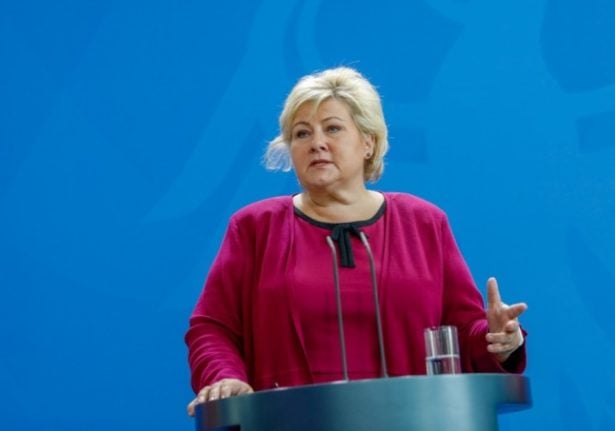From next Thursday, people can have up to ten visitors in their homes, alcohol can be served until midnight, and there will be more in-person teaching at schools and universities.
“We see that the infection rates are stable and that hospital admissions are declining. Vaccination is going according to plan. It is, therefore, justifiable to proceed with the reopening of Norway,” Solberg said at a government press conference.
“I’m very happy today that we can see the beginning of the end of the pandemic,” Solberg added
The decision for Norway to move to the second step of its reopening plan is based on advice from the Norwegian Directorate of Health and the Norwegian Institute of Public Health (NIPH).
Although national infection numbers have been falling for weeks, there have been various local coronavirus outbreaks across Norway.
READ MORE: Norway see’s Covid infections fall as R rate rises
Solberg said that despite restrictions being eased nationally, there may be a need for stricter measures at local level in some areas.
“Even if there is relief nationally, there may be a need for stricter measures to reduce outbreaks locally,” the PM said.
“It is important the municipalities are able to assess whether they must continue with stricter measures when we relax restrictions. We will probably see greater differences in the infection control rules in various regions,” Solberg added.
The complete list of measures being introduced are:
- Kindergartens and schools can move to green level. Green level means a return to normal teaching (with infection control measures in place), class sizes and scrapping the cohort system. Schools can decide whether they want to return to green level. You can read more about green level here.
- Alcohol can be served until midnight without the requirement for food to be ordered.
- Authorities no longer advise against domestic travel.
- Up to ten guests can visit private homes; vaccinated guests do not count towards the number.
- Increased testing at universities to allow for more in-person teaching
- Up to 20 people over 20 years old can train indoors and up to 30 outdoors for sports, cultural and leisure activities.
- Public events and settings with fixed designated seating, such as restaurants, can now host 200 people.
- Up to 50 people can gather at indoor public events without fixed allocated seating.
- At private gatherings that don’t take place in private homes, gardens, and cabins, up to 20 people can meet indoors or 30 outdoors. For example, you can now book a table of 20 at a restaurant.
- Fairs and markets will now fall under the same rules as shopping malls, rather than public events.
- Professional sport now has its own category in the reopening plan. The PostNord league (third division) football can now resume.
- Elite leagues in sports that have been unable to resume will now be able to do so.
The government has also submitted a proposal to parliament to amend the Infection Control Act to allow the introduction of a full corona certificate.
Currently, there is a preliminary certificate in place that shows immunity and vaccination status on helsenorge.no.
The proposal would allow for a more complete certificate to be used. The government is aiming to introduce the full certificate in the first half of June.
“The government believes that the corona certificate will help facilitate a gradual and controlled reopening of society and contribute to faster opening nationally,” Health Minister Bent Høie said in a statement.



 Please whitelist us to continue reading.
Please whitelist us to continue reading.
Member comments